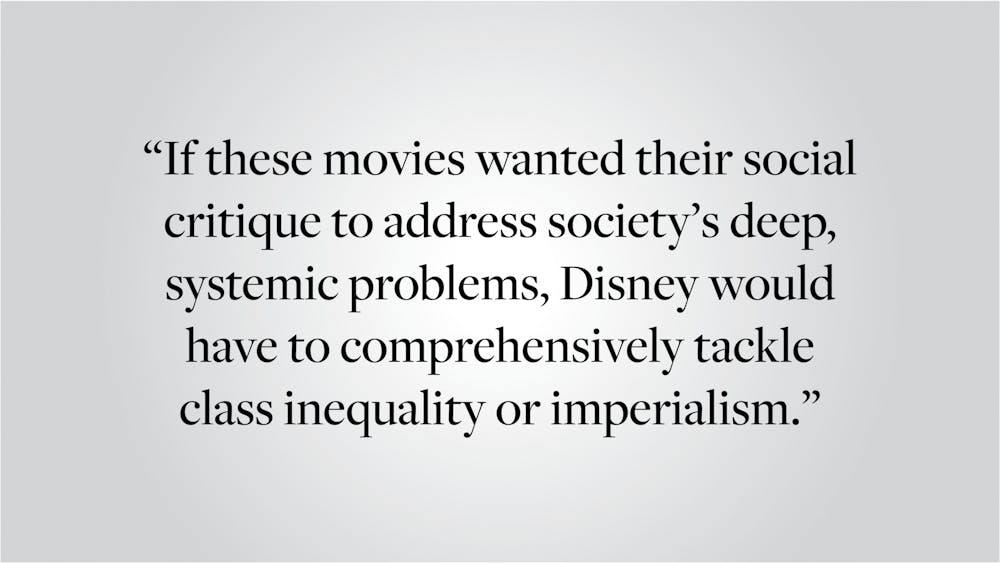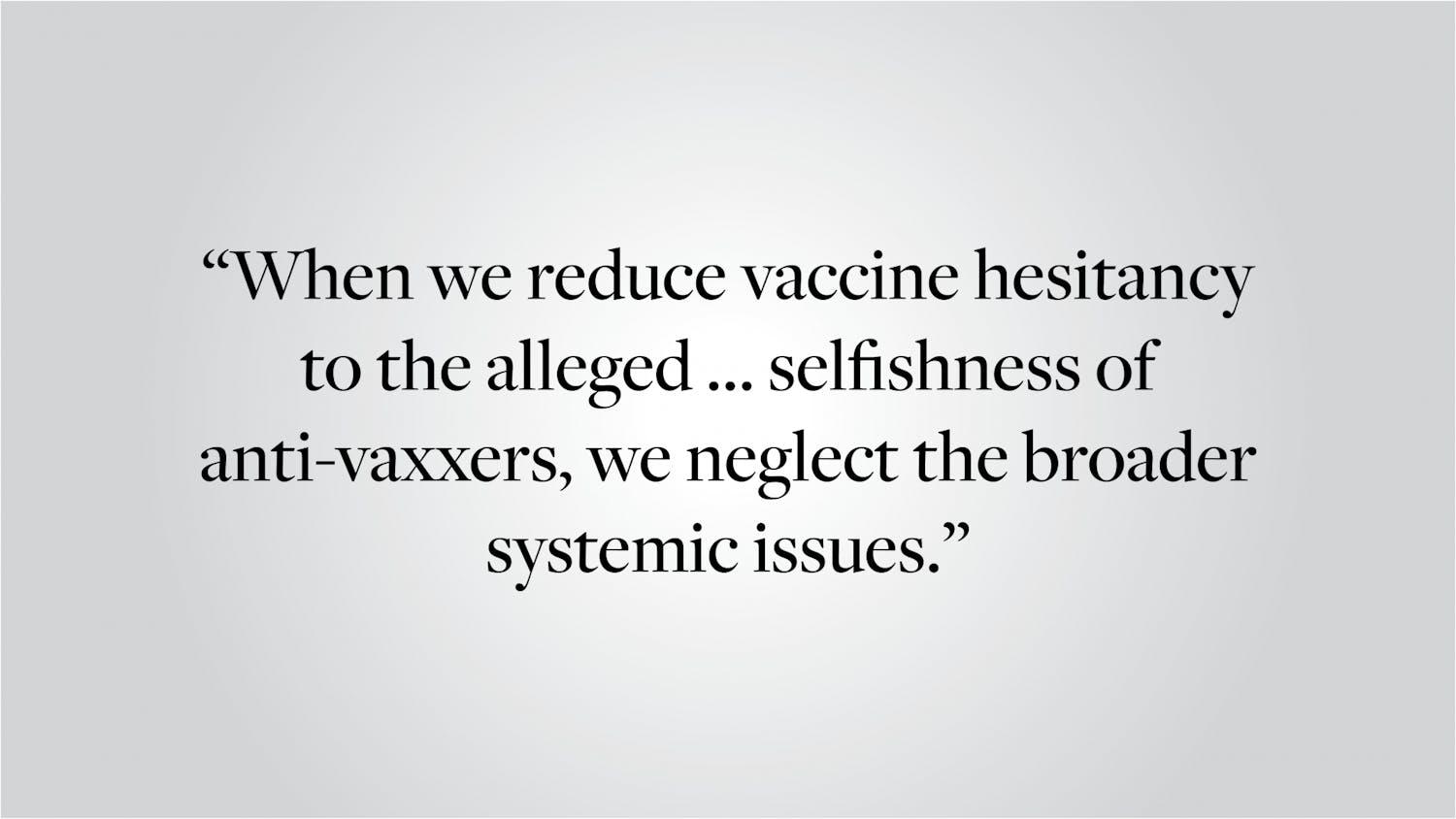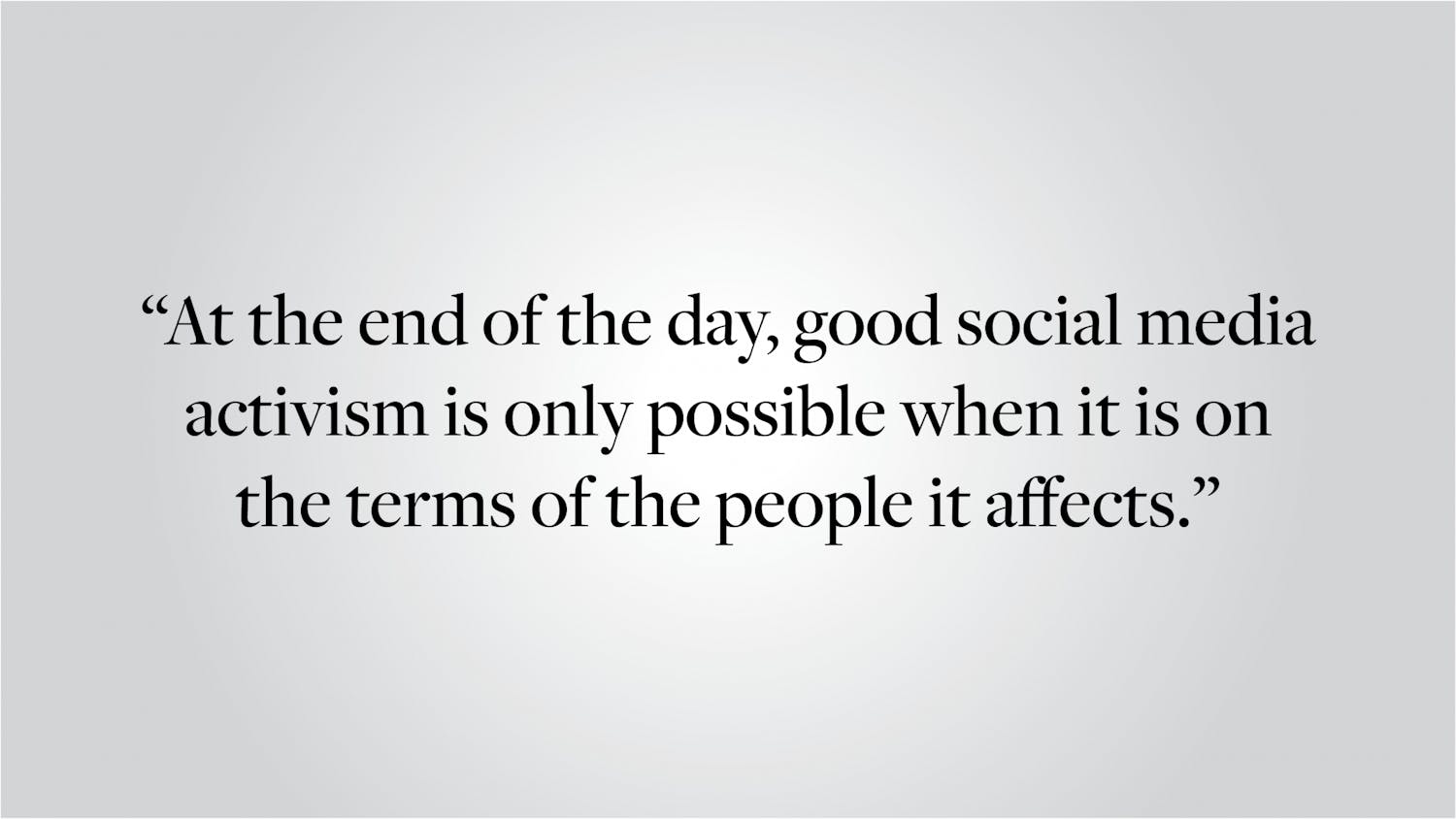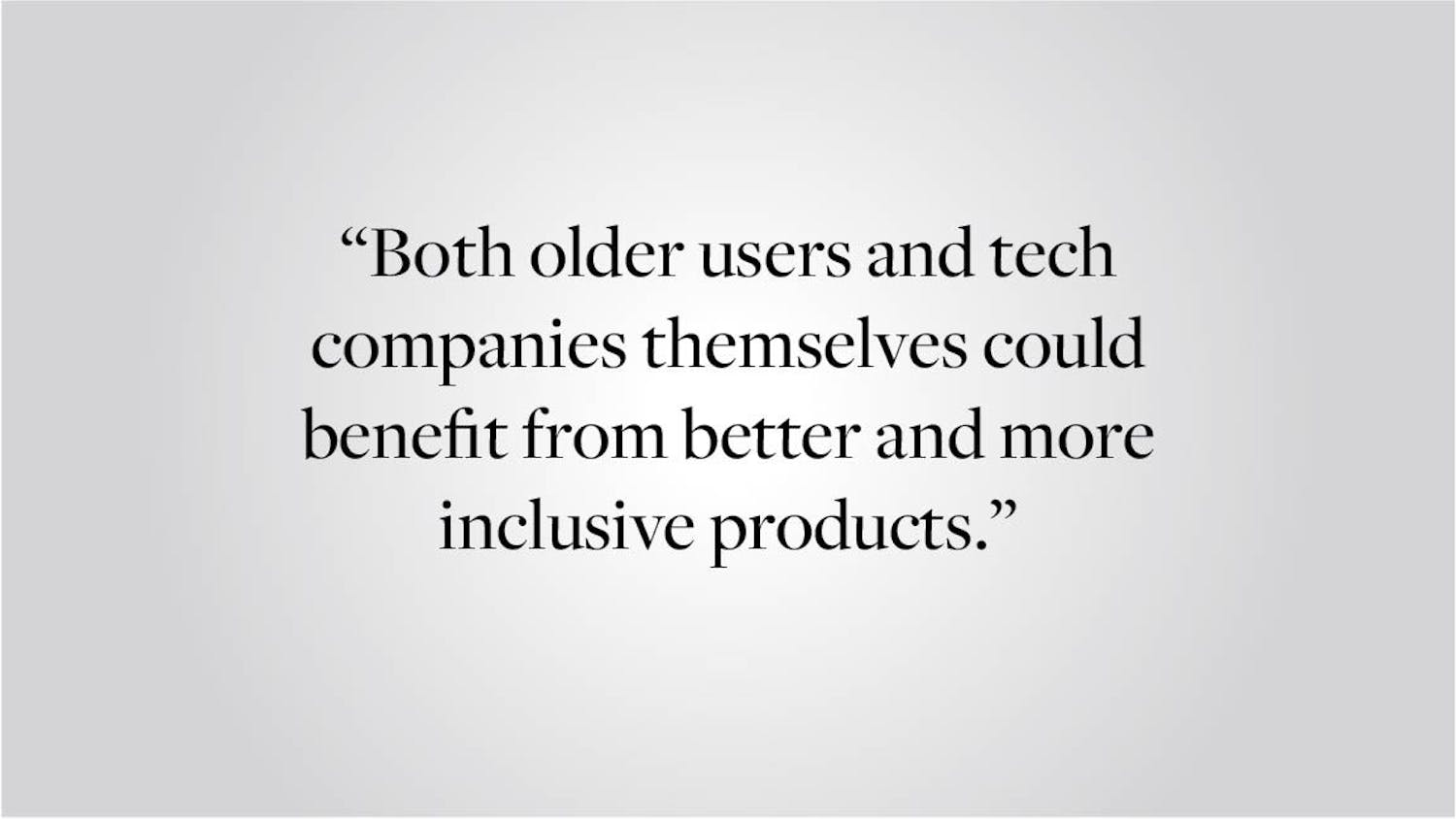In a famous column from a couple of years ago, Martin Scorsese explained his viral Empire magazine interview where he said that Marvel movies aren’t cinema. “Nothing is at risk,” he wrote about the franchise. “The pictures are made to satisfy a specific set of demands, and they are designed as variations on a finite number of themes.” He’s right, of course. The most recent Oscars — a boring slog that cut important categories like editing and production design in order to give a fan-voted award to a singular moment from Zach Snyder’s Justice League — only reinforced the growing sensation that Hollywood cinema as an art form is practically a relic of the past.
But what is particularly sinister about the ascension of Marvel movies and Disney blockbusters is their cultural dominance paired with their political worldview. Despite their superficial liberal window-dressing, these movies actively antagonize progressive structural change through depicting villains that aim to upset the status quo. The day is saved by heroes usurping these villains and ascending to positions of power. In short, the protagonists are heroic because they reinforce the system as it already exists.
Movies like The Lion King, Aladdin and Black Panther spend most of their runtime exposing the flaws of their political systems: Absolute monarchies are violent and unjust and poverty lies in direct opposition to freedom. But all we are offered in the climatic resolution of these films is the victory of a good king over a bad king — merely a balm that fails to rectify deeper social problems in these fictional societies. In this reality, a good king is not only possible, but the best outcome we can hope for. By vesting trust in benevolent monarchs, these movies cannot imagine a world in which a different, more democratic, system may order our lives.
With the recent rise of the #girlboss trend, in a calibrated effort to satisfy liberal audiences, Disney now passes the power from a bad king to a good queen. See the live-action Aladdin, which made efforts to rectify its original version’s problematic elements not by altering any of the original film’s rampant and racist Orientalism, but by giving Jasmine the crown at the film’s conclusion. This posits that the problems with Agrabah as a society were never the sultan as a political entity or the poverty that imprisoned Aladdin in an unfulfilling and alienating life of crime. It was Jafar — the individual — and male rulers more generally who were at fault. As soon as a woman wields the same absolute power, the kingdom can become a liberal utopia despite being devoid of democracy.
Not every movie has to say something about society and how it should be organized; in fact, more movies attempt this than are actually equipped to. But superhero narratives have long been deliberate metaphors for social problems. The villain represents a social ill plaguing society, and our hero stands for the solution, whether it be truth or technofascism. Yet recent blockbuster iterations of superhero stories have offered a serious understanding of good and evil that is meant to resonate with audiences paired with an insincere effort to structurally critique society.
If these movies wanted their social critique to address society’s deep, systemic problems, Disney would have to comprehensively tackle class inequality or imperialism. And it can’t because it actively contributes to those problems in the real world. So instead their films explore a series of political themes that feel out of touch, oversimplified and unsophisticated. A political reading of Thanos might suggest that he is an eco-fascist eugenicist. In Captain America: Civil War, the gang takes on libertarianism. Should a vigilante force with the destructive capability of a nuclear power become a government-regulated entity? Of course not. Because the government is bad and billionaire weapons contractors are good, the movie implies.
In Spider-Man: Far From Home, the day is saved when thousands of death drones are taken from the bad guy and instead controlled by the good guy — you know, the sixteen-year-old white kid from Queens. This does not seem coincidental considering the Pentagon’s relationship with Marvel. The Department of Defense has partially funded multiple Marvel projects, exercising influence over Marvel scripts in exchange for the studio’s free use of their equipment.
So I will do the unthinkable and counter Martin Scorsese: It is untrue that “nothing is at risk.” Yes, emotionally, we know exactly what will happen, as the movie is just a set piece for a revolving collection of the same tropes. But these movies, both on the level of story and as a commodity entangled with the military industrial complex, hawk a harmful political modality. I’m not asking for a neat or obvious moral conclusion to be reached in the form of a film; none of us want to be preached to, and that rarely results in good art anyway. But Marvel left artistic value at the door long ago. I only want us to recognize these movies for what they are, which is not only inherently political but intensely anti-progressive.
There are artistic alternatives when exploring political themes (even if they are still funded by unethical corporations) — to put it simply, there are better movies. Dune is all about a colonized planet changing hands from one imperial house to another. The new rulers of House Atreides, including our young hero, Paul, are capable and try their best to be benevolent. What makes Dune so compelling as an anti-imperialist narrative is precisely that the imperialists are charismatic but fallible. It only further sharpens the critique of the system to reject the merits of benevolent-seeming imperialists. The antagonists and previous colonizers of Arrakis, the Harkonnens, are not enemies of the Atreides’ because the two oppose each other on any moral grounds — the Atreides have no plans to decolonize Arrakis or otherwise disrupt the trade of its natural resources. Both houses simply want control over the same lucrative territory.
Or take Succession, in which four siblings vie for their sadistic father’s favor in the hope of succeeding him as CEO of a multibillion dollar media empire. There is no hero in this world of congressional hearings and corporate betrayals, a world where five people in a hotel room handpick the Republican presidential candidate. If we find ourselves rooting for any of these people, it implicates us perhaps more than the characters themselves. By thwarting the narrative structure of good versus evil, Succession acknowledges that it is the hierarchy of power itself that is harmful, and that no justice will be done if power simply transfers from one to another. That this system of power can no longer justify its own existence is something the Disney fodder continually proves but cannot explicitly acknowledge in its films. That is because Disney represents the king pitching our own flawed society back to us, hoping that we buy in.
Isabella Levine ’23 can be reached at isabella_levine@brown.edu. Please send responses to this opinion to letters@browndailyherald.com and other op-eds to opinions@browndailyherald.com.





